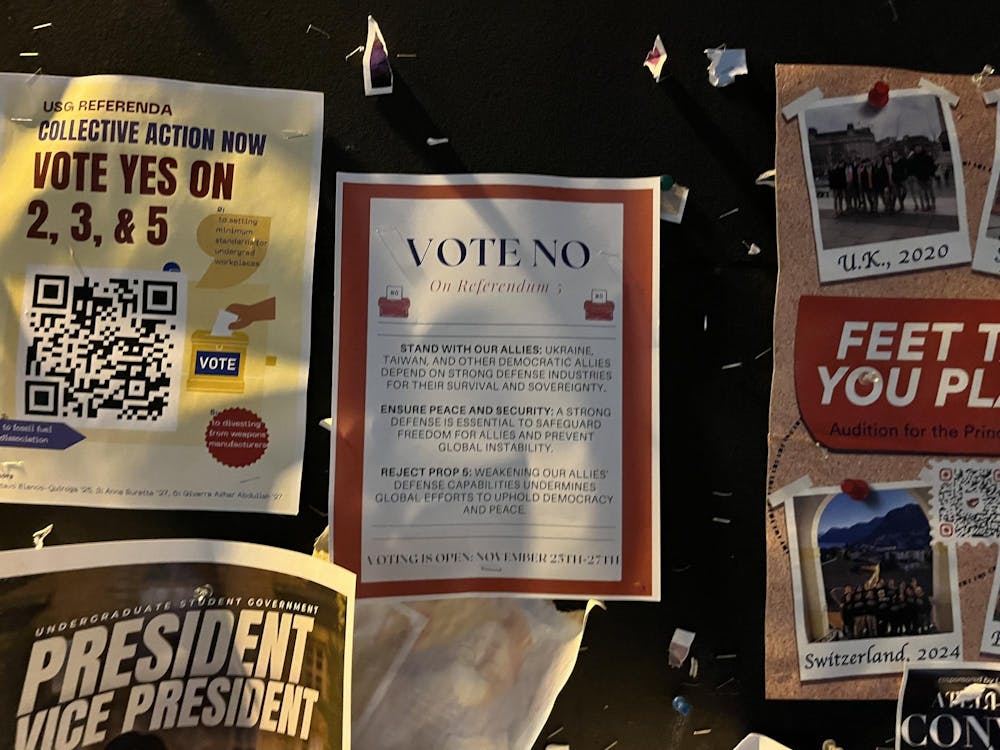Last week, Harvard Collegeannounced the creation of a $2,000 “start-up” grant for incoming members of the Class of 2020 from low-income households. The grant, which will augment Harvard’s typical financial aid package, is meant to help students “fully engage in what Harvard has to offer” irrespective of their financial circumstances by offering them assistance with the costs related to college matriculation. One member of Harvard’s Undergraduate Council aptly noted that, despite Harvard’s need blind policy for admission, few resources and other opportunities on campus are likewise need blind.
The Board recognizes and lauds Princeton’s generous financial aid program, and we recognize the significant steps the University has taken to make the undergraduate experience more financially inclusive; however, we call on the University to implement a start-up program similar to that implemented at Harvard. This program should cover exclusively high costs faced by low-income students as they transition from high school to college, such as travel costs during move-in for a parent or guardian, dorm furnishings and rain and snow gear.
Princeton has long been a pioneer of financial aid policy among Ivy League universities, implementinga guarantee to loan-free, grant-funded financial aid in 2001. Currently, approximately 60 percent of undergraduate students receive some form of financial aid. The average aid package for the Class of 2019 awarded students approximately $46,000 in grant aid each, not including work study, which covers the entire cost of Princeton tuition. Families with incomes up to $250,000 typically receive at least some aid. Additionally, the financial aid budget for all juniors and seniors increases the board allowance to $8,350 per year in order to allow students, including those from low-income backgrounds, to join eating clubs, making them far more financially inclusive for undergraduates.
Despite the University’s guarantee to cover the full cost of a Princeton education including room and board for undergraduates from families with incomes under $65,000 per year, the Board recognizes that certain financial barriers to a Princeton education still exist. Costs incurred by incoming students as they move from home to the University often include travel expenses, expenses associated with furnishing and outfitting a dorm room, academics-related expenses such as a laptop and textbooks and cold-weather gear for New Jersey winters. While the University’s student budget includes allocations for travel, textbooks and miscellaneous expenses, many incoming students are unaware of the option to transfer funds from a student account to an external bank account. Consequently, these students may be compelled to take out personal loans to cover start-up expenses.
The Board proposes a $2,000 start-up grant, issued in the summer before a student’s freshman year. This grant would be available to students from families with annual incomes below $100,000, or students whose aid awards cover full tuition and half of room and board expenses. This is meant to ensure that students from higher-income earning families who still face unique financial challenges such as large family sizes will receive much-needed grants. The first allotment of the grant would be issued by mid-July to allow students sufficient time to make travel plans and necessary purchases. Generously assuming that 40 percent of incoming students would receive the grant, the total cost of the grant would be just over $1 million per year. Given the size of the University’s endowment, this additional yearly expenditure is incredibly reasonable. The Board advocates for the grant to be drawn from the endowment or an alternate donation pool rather than from an increase in tuition.
The University’s implementation of meaningful measures to make a Princeton education a financial reality for all admitted students has not gone unnoticed; however, the addition of a start-up grant for first-year students would allow them to feel more welcomed and included at Princeton. The grant, which would help to cover travel costs for a parent or guardian to help a student move in or whelp a student contribute to common room furnishings instead of telling his or her roommates that he or she cannot afford to do so, is an additional step the University may take to accommodate the financial needs of all undergraduates. As such, the Board strongly advocates for its creation.
The Editorial Board is an independent body and decides its opinions separately from the regular staff and editors of The Daily Princetonian. The Board answers only to its Chair, the Opinion Editor and the Editor-in-Chief.








